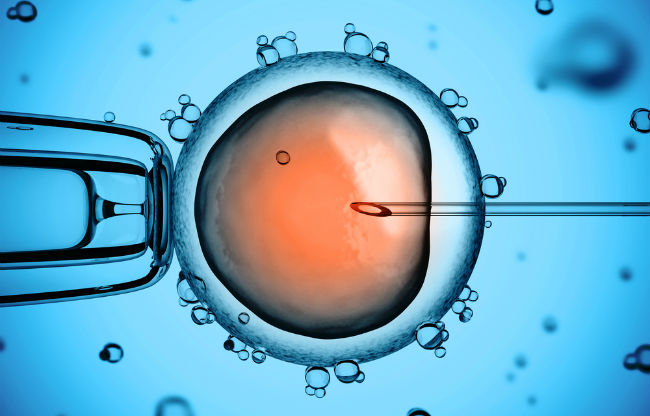
You may have heard that in Britain, a group of scientists are being allowed to “edit” the genetics of human embryos. This is, of course, hugely controversial on multiple levels, but also extremely promising science. Here’s what you need to know.
What do you mean by “edit,” exactly?
Pretty much exactly what it sounds like. Dr. Kathy Niakan and her team at the Francis Crick Institute have been given permission by the British government to use techniques called CRISPR and Cas9, powerful and precise gene-editing tools, on human embryos.
Are we talking viable babies here? Will these embryos be brought to term?
Nope. Most of the research will be centered on the first week of cell division, from fertilization through cavitation, for those who remember their high-school health classes. The test embryos are coming from fertilization clinics; they were never going to be brought to term and would just be disposed of otherwise. In fact, the team is required to destroy these embryos after seven days.
What exactly is this team going to do?
They’re going to knock out a specific gene, the expression of which may be related to miscarriages and other early-term pregnancy problems, to see how it affects the embryos. The ultimate goal here is to better understand the very earliest stages of human life and how it works, so we can use that to reduce miscarriages and infertility.
Isn’t this a slippery slope? What happens if we start genetically editing babies and bringing them to term?
We’re a long way away from Gattaca or Brave New World, and there’s a strong chance that might never happen. We have no idea how human embryos will react to gene editing in the first place; it might be impossible to use the technique on humans, or offer so little viable data that it’s pointless. Furthermore, it’s a huge leap to go from editing embryos that have to be terminated after seven days to developing a gene-edited baby that can actually be born and live a normal life. That’s a much more complex task that we probably don’t even have the grasp of human gestation to even attempt yet, let alone be successful at it.
This is undeniably a messy ethical and moral thicket, and even scientists eager to use the technology are still struggling with the full moral implications of CRISPR technology. But if we can learn more about how we’re born, it might change how we live for the better.
(Via Mic)
